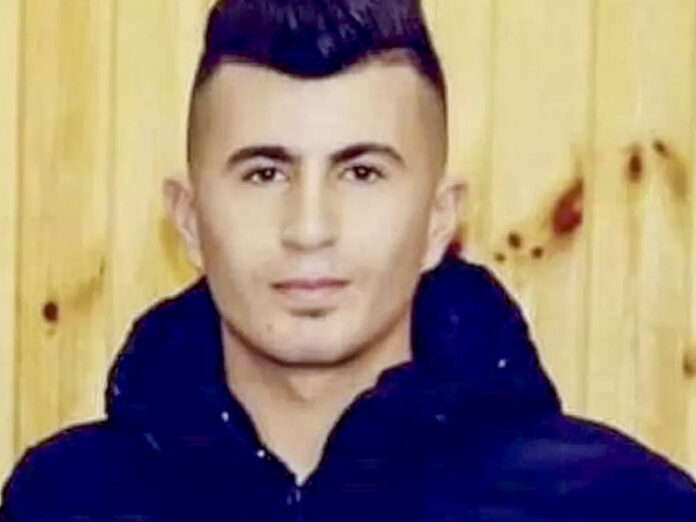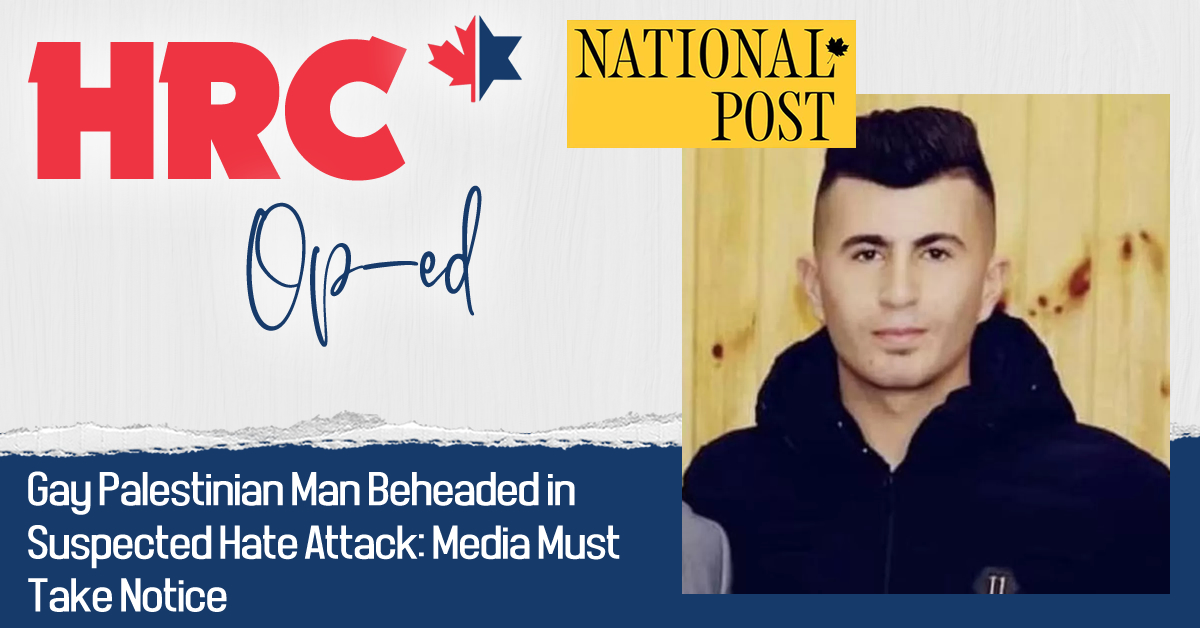Ahmad Abu Markiyeh – Photo: Facebook.
” data-medium-file=”https://i0.wp.com/www.metroweekly.com/wp-content/uploads/2022/10/Ahmad-Abu-Marhia-Facebook.jpg?resize=300%2C194&ssl=1″ data-large-file=”https://i0.wp.com/www.metroweekly.com/wp-content/uploads/2022/10/Ahmad-Abu-Marhia-Facebook.jpg?fit=800%2C600&ssl=1″ class=”wp-image-218302 size-full” src=”https://i0.wp.com/www.metroweekly.com/wp-content/uploads/2022/10/Ahmad-Abu-Marhia-Facebook.jpg?resize=800%2C600&ssl=1″ alt width=”800″ height=”600″ srcset=”https://i0.wp.com/www.metroweekly.com/wp-content/uploads/2022/10/Ahmad-Abu-Marhia-Facebook.jpg?w=800&ssl=1 800w, https://i0.wp.com/www.metroweekly.com/wp-content/uploads/2022/10/Ahmad-Abu-Marhia-Facebook.jpg?resize=768%2C576&ssl=1 768w, https://i0.wp.com/www.metroweekly.com/wp-content/uploads/2022/10/Ahmad-Abu-Marhia-Facebook.jpg?resize=300%2C225&ssl=1 300w” sizes=”(max-width: 800px) 100vw, 800px” data-recalc-dims=”1″>
A gay Palestinian man who had sought asylum in Israel was beheaded in the West Bank city of Hebron last week in an act that was recorded on video and uploaded to social media by the alleged perpetrator.
The victim, 25-year-old Ahmad Abu Murkhiyeh, had been living in Israel for the past two years as an asylum seeker — including stints in various LGBTQ shelters — after authorities acknowledged that his life would be in danger if he returned to Palestinian territory.
An estimated 90 Palestinians who identify as members of the LGBTQ community currently live as asylum seekers in Israel. To qualify, they must prove they have suffered discrimination or threats of violence in their home communities, reports The Times of Israel.
Until this past July, asylum seekers were not allowed to work in Israel. According to Rita Petrenko, the founder of Al-Bayt Al-Mukhtalif, a nonprofit organization for members of the Arab LGBTQ community, Abu Murkhiyeh had been searching for a stable, legal job after the law changed, but had only managed to find low-paying, under-the-table jobs at restaurants in Tel Aviv’s upscale Sarona neighborhood.
It was not immediately clear how Abu Murkhiyeh ended up in Hebron, but friends believe he was kidnapped prior to his murder — although there no concrete evidence to support such a claim.
Petrenko told The Times of Israel that she had helped arrange for Abu Murkhiyeh’s asylum papers in preparation for his eventual resettlement in Canada. She said, to her knowledge, he had not returned to the West Bank since fleeing his hometown out of fear of retaliation from his estranged family and neighbors, and had no plans to travel back there.
In an interview with Palestinian radio station Karama, an older member of the victim’s family, also named Ahmad Abu Murkhiyeh, claimed that the victim had been residing in Jordan — where his father was born — but often visited Hebron to work and to spend time with family in the city. The family also dismissed claims about the motive for the killing as rumor.
The family’s account contradicts Israeli media sources, although The Times of Israel noted that such claims could be indicative of relatives’ reluctance to acknowledge Abu Murkhiyeh’s sexual orientation. Homosexuality is generally condemned in socially conservative communities — Muslim, Christian, and Jewish alike — in both Israel and the West Bank, but anti-gay animus is especially strong in majority-Muslim areas.
Palestinian Authority police arrested a suspect near the scene of the crime. They claim the suspect beheaded Abu Murkhiyeh and recorded the act on video before uploading it to social media.
Israeli sources, the PA police, and Abu Murkhiyeh’s family have all been unable to clarify whether he knew or had any prior connection to the alleged killer. Police have also refrained from discussing the killer’s motive, despite widespread speculation that Abu Murkhiyeh was killed because of his sexual orientation.
Palestinians have largely reacted with horror at the crime, even though reports in Palestinian media have erased or downplayed Abu Murkiyeh’s sexual orientation and Israeli residency, reports the BBC.
A presenter on the Palestinian radio station condemned the beheading, saying it “crossed every single red line in our society, whether in terms of morals, customs, or basic humanity.”
A spokesman for the PA police, Lu’ay Arziqat, described the beheading as a “new kind of crime in Palestine” and urged people to avoid sharing the video of the beheading on social media out of fear that it may inspire copycat acts.
Arziqat called the act of recording and uploading the video as “the most dangerous” aspect of one of the most terrible cases he’s ever encountered as a law enforcement officer.
The case remains under investigation.









